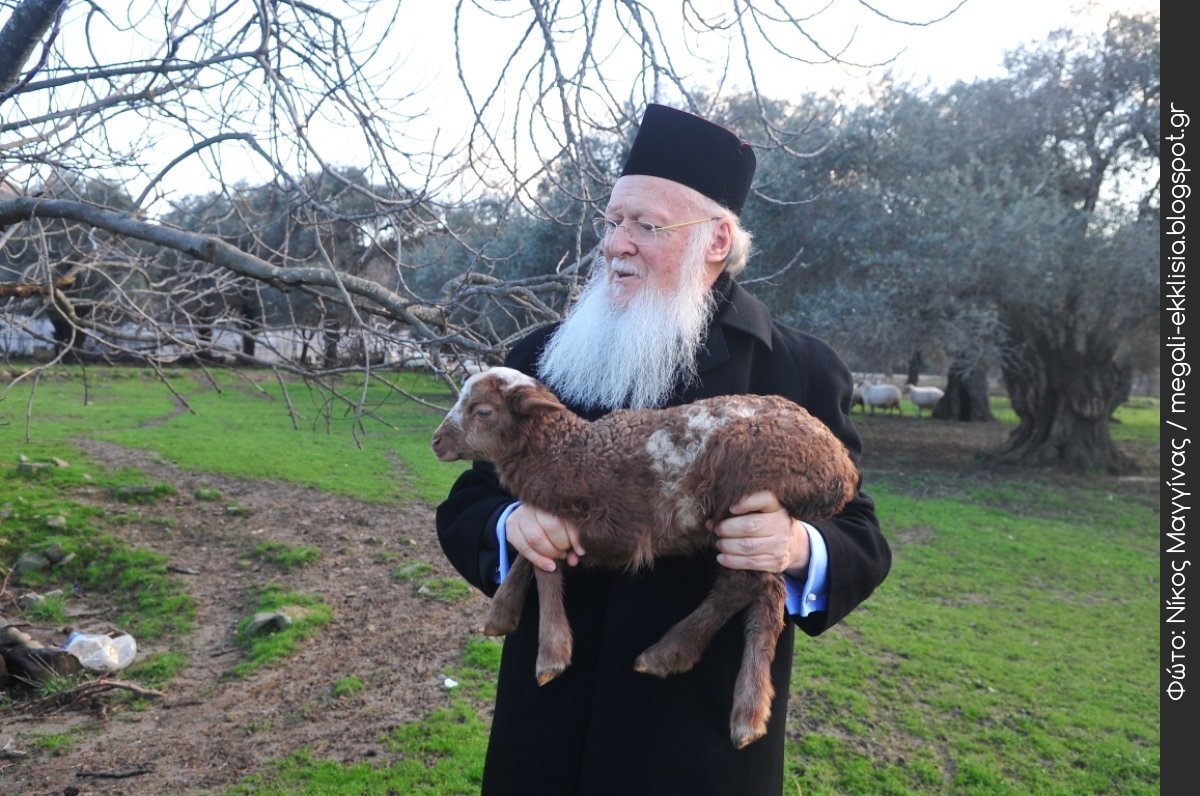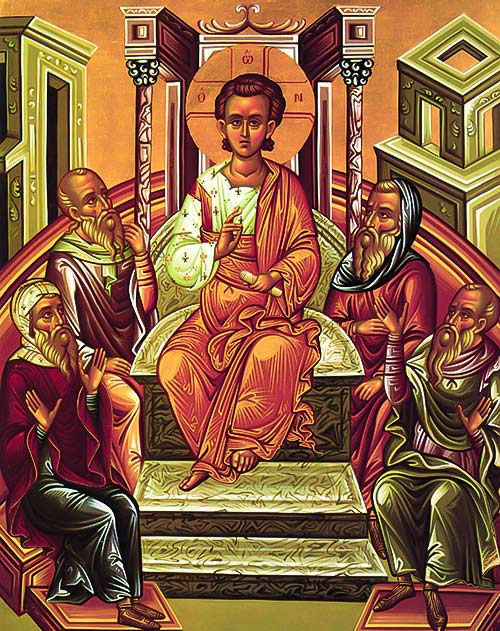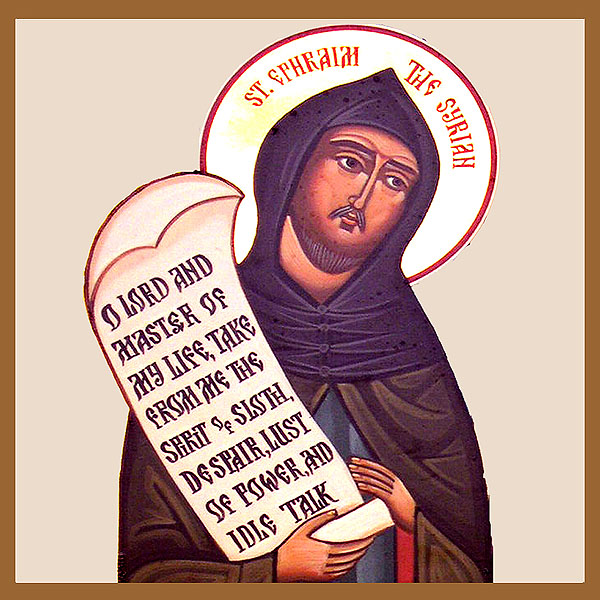Message by Ecumenical Patriarch Bartholomew for World Oceans Day
 Hurt not the earth, neither the seas nor the trees. (Rev. 7.3)
Hurt not the earth, neither the seas nor the trees. (Rev. 7.3)
World Oceans Day celebrates one of the most precious gifts of our Creator, a gift that we are called to preserve and conserve.
Over the past two decades, the Ecumenical Patriarchate has highlighted the deteriorating condition of the world’s oceans. Now, more than ever, it is crucial to respect and protect this invaluable and inalienable resource of our planet, which is a unique source of nurture and biodiversity.
Pentecost: The Descent of the Holy Spirit
 In the Old Testament Pentecost was the feast which occurred fifty days after Passover. As the passover feast celebrated the exodus of the Israelites from the slavery of Egypt, so Pentecost celebrated God’s gift of the ten commandments to Moses on Mount Sinai.
In the Old Testament Pentecost was the feast which occurred fifty days after Passover. As the passover feast celebrated the exodus of the Israelites from the slavery of Egypt, so Pentecost celebrated God’s gift of the ten commandments to Moses on Mount Sinai.
In the new covenant of the Messiah, the passover event takes on its new meaning as the celebration of Christ’s death and resurrection, the “exodus” of men from this sinful world to the Kingdom of God. And in the New Testament as well, the pentecostal feast is fulfilled and made new by the coming of the “new law,” the descent of the Holy Spirit upon the disciples of Christ.
When the day of Pentecost had come they were all together in one place. And suddenly a sound came from heaven like the rush of a mighty wind, and it filled all the house where they were sitting. And there appeared to them tongues as of fire, distributed as resting upon each one of them. And they were all filled with the Holy Spirit . . . (Acts 2.1–4).
St. Helen, Mother of Emperor Constantine, Equal of the Apostles
 St. Helen was the mother of St. Constantine the Great, and was born at Drepanum (Helenopolis) in Asia Minor to parents of humble means. She married Constantius Chlorus, and their son Constantine was born in 274. Constantius divorced her in 294 in order to further his political ambitions by marrying a woman of noble rank. After he became emperor, Constantine showed his mother great honor and respect, granting her the imperial title “Augusta.”
St. Helen was the mother of St. Constantine the Great, and was born at Drepanum (Helenopolis) in Asia Minor to parents of humble means. She married Constantius Chlorus, and their son Constantine was born in 274. Constantius divorced her in 294 in order to further his political ambitions by marrying a woman of noble rank. After he became emperor, Constantine showed his mother great honor and respect, granting her the imperial title “Augusta.”
After St. Constantine became the sole ruler of the Western Roman Empire, he issued the Edict of Milan in 313 which guaranteed religious tolerance for Christians. St. Helen, who was a Christian, may have influenced him in this decision. In 323, when he became the sole ruler of the entire Roman Empire, he extended the provisions of the Edict of Milan to the Eastern half of the Empire. After three hundred years of persecution, Christians could finally practice their faith without fear.
Feast of Mid-Pentecost
 The fourth Wednesday after the Feast of Holy Pascha is commemorated as Mid-Pentecost. This feast marks the halfway point between Pascha and the Feast of Pentecost. As explained below this feast is closely linked to the Sunday of the Paralytic.
The fourth Wednesday after the Feast of Holy Pascha is commemorated as Mid-Pentecost. This feast marks the halfway point between Pascha and the Feast of Pentecost. As explained below this feast is closely linked to the Sunday of the Paralytic.
After the Saviour had miraculously healed the paralytic, the Jews, especially the Pharisees and Scribes, were moved with envy and persecuted Him, and sought to slay Him, using the excuse that He did not keep the Sabbath, since He worked miracles on that day. Jesus then departed to Galilee. About the middle of the Feast of Tabernacles, He went up again to the Temple and taught. The Jews, marvelling at the wisdom of His words, said, "How knoweth this man letters, having never learned?" But Christ first reproached their unbelief and lawlessness, then proved to them by the Law that they sought to slay Him unjustly, supposedly as a despiser of the Law, since He had healed the paralytic on the Sabbath. Therefore, since the things spoken by Christ in the middle of the Feast of Tabernacles are related to the Sunday of the Paralytic that is just passed, and since we have already reached the midpoint of the fifty days between Pascha and Pentecost, the Church has appointed this present feast as a bond between the two great feasts, thereby uniting, as it were, the two into one, and partaking of the grace of them both. Therefore today's feast is called Mid-Pentecost, and the Gospel Reading, "At Mid-feast"--though it refers to the Feast of Tabernacles - is used.
Venerable Ephraim the Syrian
 Saint Ephraim the Syrian, a teacher of repentance, was born at the beginning of the fourth century in the city of Nisibis (Mesopotamia) into the family of impoverished toilers of the soil. His parents raised their son in piety, but from his childhood he was known for his quick temper and impetuous character. He often had fights, acted thoughtlessly, and even doubted God’s Providence. He finally recovered his senses by the grace of God, and embarked on the path of repentance and salvation.
Saint Ephraim the Syrian, a teacher of repentance, was born at the beginning of the fourth century in the city of Nisibis (Mesopotamia) into the family of impoverished toilers of the soil. His parents raised their son in piety, but from his childhood he was known for his quick temper and impetuous character. He often had fights, acted thoughtlessly, and even doubted God’s Providence. He finally recovered his senses by the grace of God, and embarked on the path of repentance and salvation.
Once, he was unjustly accused of stealing a sheep and was thrown into prison. He heard a voice in a dream calling him to repent and correct his life. After this, he was acquitted of the charges and set free.

